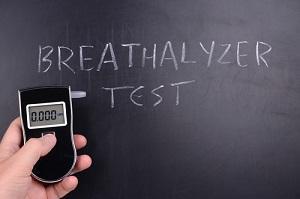Breathalyzer Science: How Reliable Are Breathalyzer Tests in DUI Cases?
 The moment a driver is pulled over for suspicion of driving under the influence, he or she is often faced with a series of field and sobriety tests—including blood-alcohol content (BAC) tests—that ultimately help determine their fate in a court of law. Whatever the outcome, the driver found guilty of a DUI offense faces everything from the loss of driving privileges and serious prison time to hefty fines and community service. Depending on the severity of the conviction, the driver’s life can be affected for months, and even years following the DUI arrest.
The moment a driver is pulled over for suspicion of driving under the influence, he or she is often faced with a series of field and sobriety tests—including blood-alcohol content (BAC) tests—that ultimately help determine their fate in a court of law. Whatever the outcome, the driver found guilty of a DUI offense faces everything from the loss of driving privileges and serious prison time to hefty fines and community service. Depending on the severity of the conviction, the driver’s life can be affected for months, and even years following the DUI arrest.
The Science Behind the Breathalyzer
When so much rests on the results of sobriety tests, it is understandable that the reliability of such tests are questioned and challenged. So, just how reliable are breathalyzers? How do they work, and can they be trusted? In short, a breathalyzer is a modified infrared radiation spectrometer. That is a fancy term for a device that measures the absorption of organic compounds in the blood stream - in this case, alcohol. When you blow into a breathalyzer, the alcohol that is in your blood transfers through to your breath, and the device calibrates to read the concentration of alcohol in your system.
Can Breathalyzer Tests Be Trusted?
According to a lawyer in a report from The New York Times, breathalyzer devices have been called “unimpeachably reliable,” and a piece from Forbes stated that drivers are unable to cheat breathalyzers, referring to methods such as placing your tongue over or blowing your breath down the side of the mouthpiece. However, there have been cases where judges have questioned the reliability of certain breathalyzer devices and have warned they should be used with discretion. Thanks to plentiful statistics, there is no denying that the science behind the breathalyzer is legitimate and that it provides accurate information, but whether every single device, under every circumstance, is positively accurate appears to be debatable.
Here are some basic things we know about the devices:
- They are supposed to conform to strict standards of accuracy, which are determined by the National Highway Traffic Safety Administration
- They can also detect other substances, such as methanol, isopropyl alcohol, or acetone
- The breath tube piece that the driver blows directly into is designed to conform to Boyle’s Law, in order to ensure the samples are continually accurate. This means it is pre-heated to a specific temperature.
When a breathalyzer device fails to meet the required specifications, the results they provide may prove to be unreliable. If you have been accused of driving under the influence and are concerned about the accuracy of the breathalyzer test you have been requested to submit to, you need to speak with a knowledgeable Chicago DUI defense lawyer. You may be within your rights to refuse a BAC test altogether. Call the Luisi Legal Group today at 773-276-5541 to schedule a personal consultation.
Sources:
http://www.forbes.com/sites/quora/2016/10/13/how-does-a-breathalyzer-test-work
http://www.nytimes.com/2009/08/31/opinion/31cook.html
http://www.nytimes.com/2007/02/15/nyregion/15drunk.html





 773-276-5541
773-276-5541










